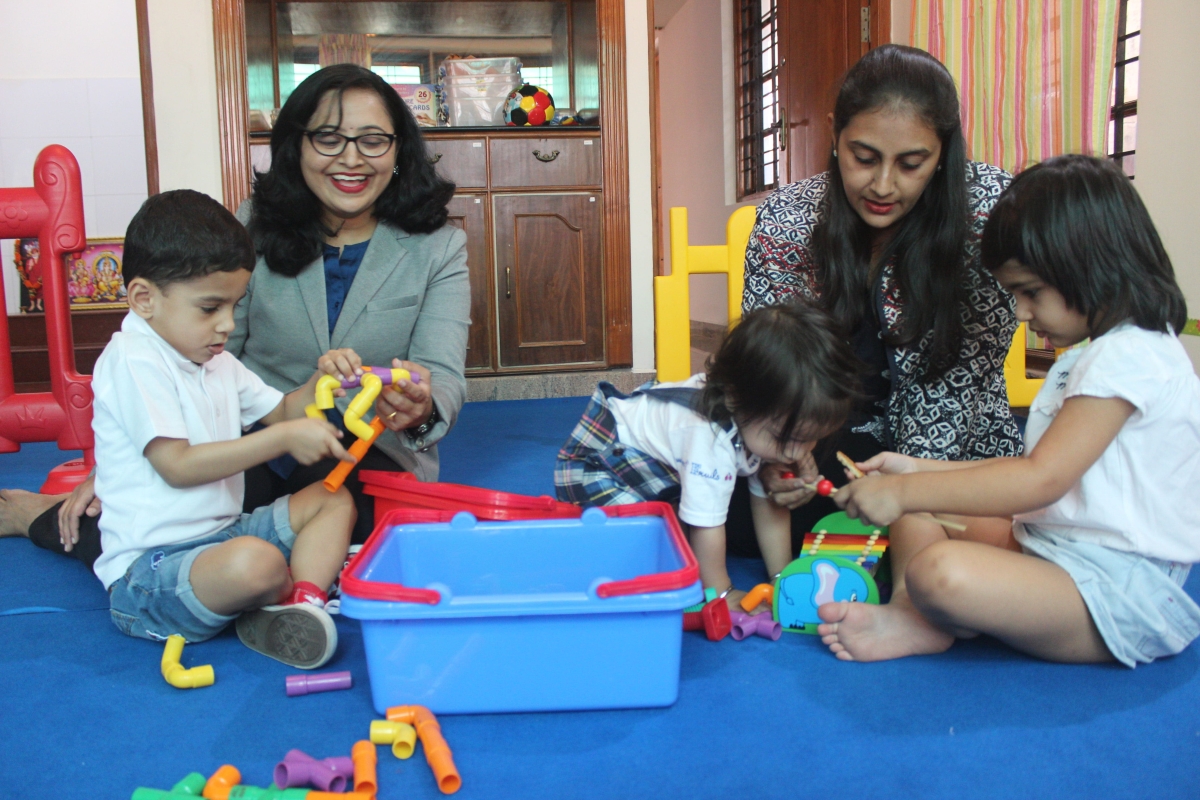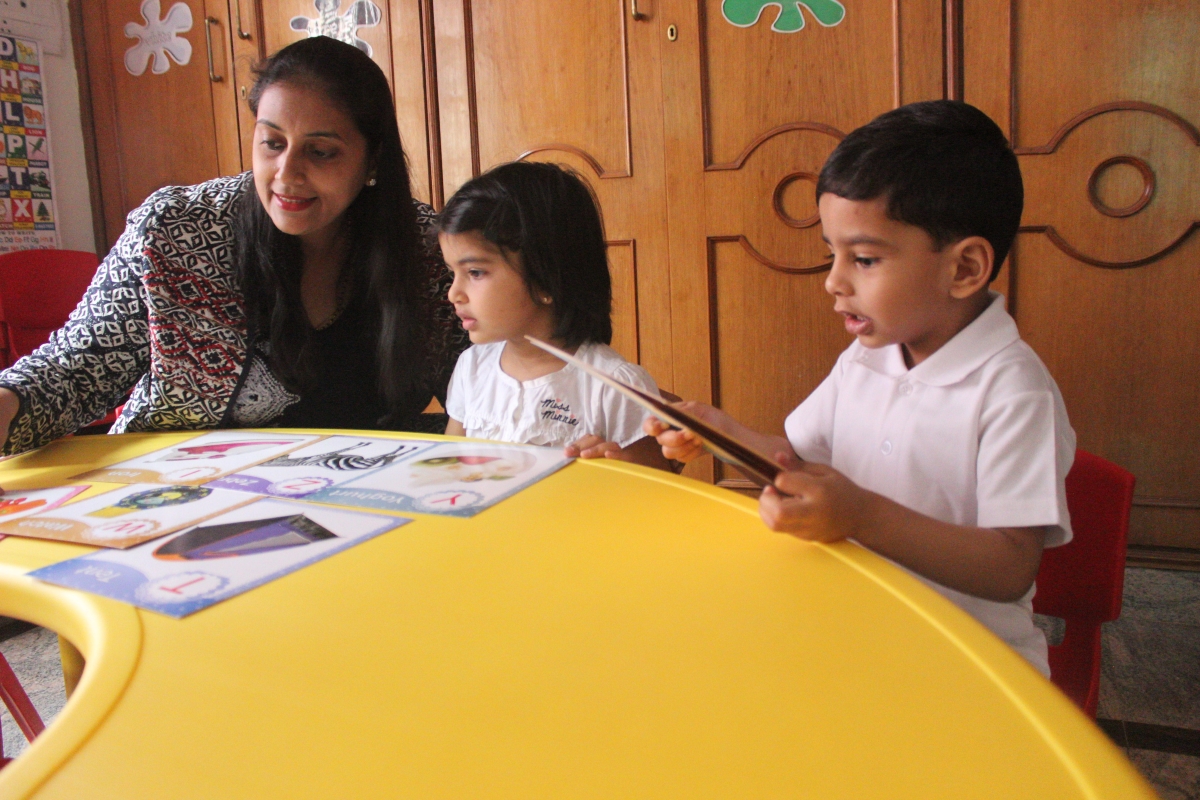The Environment
At ANKURAM Preschool, we strive to provide a clean, safe and educational environment for young children and their families. Within our care, children develop skills that promote physical, emotional, social and intellectual growth. We believe in being supportive of our parents, and we welcome their positive involvement and presence at ANKURAM Preschool at all times. We further believe that within our environment, children can thrive and have the opportunity to blossom into responsible and contributing members of our society.
Our Staff
Ankuram Preschool employs a team of qualified teachers as our in-house teaching staff experienced to handle and teach the little ones. These faculties possess veritable experience in training and attending to children aged below 6 years, and are equipped to support and interact with kids responsibly. We conduct rigorous background verification tests on all our faculty members to ensure that we are compliant with national and international standards when it comes to the safety of your children. In addition, they continue to update their education by attending courses, conferences or workshops.


Our Philosophy
ANKURAM Preschool is dedicated and committed to our children by providing exceptional education and quality child care. It is our philosophy to focus on the needs of the individual child by providing a stimulating atmosphere for learning along with a secure loving environment. It is our belief that a childcare facility should be an extension of each child’s family.
ANKURAM Preschool teachers and parents are encouraged to work together to provide the love and support needed as your child reaches developmental milestones and his/her own personal achievements! We are passionate about education and providing our children with the tools to be successful in life.
This is a very important stage as it helps your child get ready for school as well as preparing them for their future learning and successes. From when your child is born up until the age of 5, their early years experience should be happy, active, exciting, fun and secure; and support their development, care and learning needs. The 7 areas of learning and development which guide professionals’ engagement with your child’s play and activities as they learn new skills and knowledge • Assessments that will tell you about your child’s progress through the EYFS
Early Years Foundation Stage (EYFS)
We at Ankuram follow the best practice of Early Years Foundation Stage (EYFS-UK). The EYFS seeks to provide quality and consistency in all early years settings, so that every child makes good progress and no child gets left behind, a secure foundation through learning and development opportunities which are planned around the needs and interests of each individual child and are assessed and reviewed regularly , partnership working between teachers and with parents , equality of opportunity and anti-discriminatory practice, ensuring that every child is included and supported.
Areas of learning
Your child will mostly be taught through games and play.
The areas of learning are:
• Communication and language
• Physical development
• Personal, social and emotional development
• Literacy
• Mathematics
• Understanding the world
• Expressive arts and design
Assessments
Assessment during EYFS Assessment plays an important part in helping parents and teachers to recognise children’s progress, understand their needs, and to plan activities and support. Ongoing assessment is an integral part of the learning and development process. It involves teachers observing children to understand their level of achievement, interests and learning styles, and to then shape learning experiences for each child reflecting those observations. In their interactions with children, teachers should respond to their own day-to-day observations about children’s progress and teachers that parents and guardians share. To this end we make systematic observations and assessments of each child's achievements, interests and learning styles. We then use these observations and assessments to identify learning priorities and plan relevant and motivating learning experiences for each child.